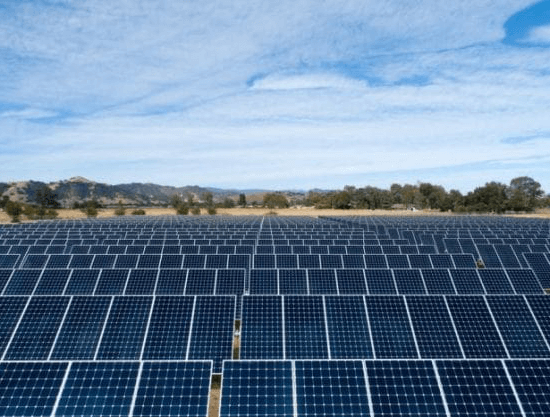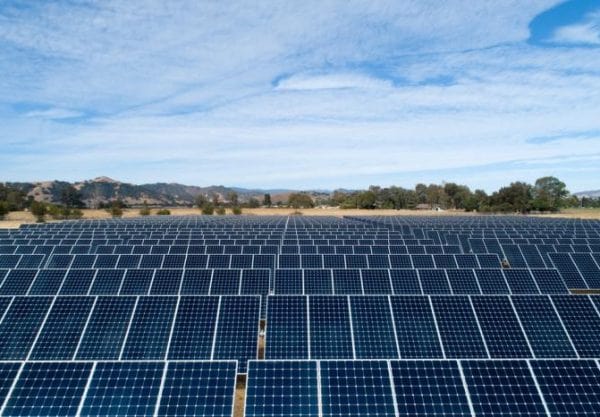Introduction: Solar Energy—A Glimpse into the Future of Renewable Resources
Solar energy is rapidly becoming a cornerstone in the realm of renewable resources, poised to reshape how we think about and utilize energy. The sun showers the Earth with a staggering amount of energy daily—enough to meet the global power needs for an entire year in just one hour. By harnessing this abundant and free resource through photovoltaic (PV) cells, we can convert sunlight into electricity for a myriad of applications, from powering homes and businesses to charging electric vehicles.
Fact Check:
According to the International Energy Agency, solar energy is the fastest-growing energy source, with a 22% increase in global installed capacity in 2020 alone. Solar power has also become more affordable; the cost of solar PV modules has dropped by around 90% since 2010, according to IRENA (International Renewable Energy Agency).
Technological Innovations:
The solar industry is not what it used to be; it’s far better. Advancements like bifacial solar panels, which can capture sunlight on both sides, and smart solar inverters that maximize energy capture, are some of the latest innovations making waves. Even more exciting is the development of transparent solar cells that can be integrated into windows, and solar fabrics that can be woven into consumer goods.
The Need for a Balanced Perspective:
While the future of solar energy seems almost blindingly bright, it’s essential to take a nuanced view. Like any other resource, solar energy has its pros and cons, affecting its efficiency, cost-effectiveness, and environmental impact. Therefore, understanding these factors thoroughly can help individuals and businesses make informed decisions about making the switch to solar power.
Stay tuned as we delve into the seven key advantages and disadvantages of solar energy to help you make a more informed decision.
What is the Advantages and Disadvantages of solar energy
Here’s an overview of some of the most commonly cited advantages and disadvantages:
Advantages of Solar Energy
- Renewable Energy Source: Solar energy is a renewable resource, meaning we won’t run out of it, unlike fossil fuels.
- Environmentally Friendly: Solar panels produce no pollution when generating electricity, which helps combat climate change and reduces our overall greenhouse gas emissions.
- Reduced Electricity Bills: After the initial setup cost, solar energy can significantly reduce your electricity bill. You can even make money by selling the excess energy back to the grid in some jurisdictions.
- Applicability: Solar panels can be installed virtually anywhere, particularly useful in remote areas where it’s costly to extend electricity power lines.
- Low Operating Costs: Once installed, solar power systems require very little maintenance, mostly just regular cleaning.
- Technological Advancements: With the advancement of technology, solar panels are becoming more efficient, storage solutions are improving, and costs are decreasing, making it more accessible for the average consumer.
- Energy Independence: For nations and individuals, using solar energy helps to reduce dependency on foreign or out-of-state energy, thus contributing to energy independence.
Disadvantages of Solar Energy
- High Initial Cost: The initial investment for purchasing solar panels, inverters, batteries, and installation can be quite high.
- Weather-Dependent: Solar energy production depends on weather conditions. Although energy can still be collected during cloudy or rainy days, the efficiency drops.
- Space Requirement: Solar panel systems require a lot of space, which might be a problem for people with limited space or those living in densely populated areas.
- Energy Production Rates: The solar power generation is inconsistent, as it cannot produce electricity during the night and the production is reduced on cloudy days.
- Environmental Impact: While the production of energy is clean, the manufacturing, transportation, and installation of solar power systems have environmental impacts, albeit much lower than fossil fuels.
- Storage Costs: To store energy for use during non-sunny hours, you’ll need a battery system, which can be expensive and also has a finite lifespan.
- Intermittency and Reliability: Because it can’t always produce energy when you need it, solar power is intermittent and must be paired with storage or other energy sources to be reliable for most applications.
Understanding these pros and cons can help individuals and policymakers make more informed decisions about adopting solar energy.
7 Advantages of solar energy
1. Reduced Electricity Bills
Solar energy can be a substantial boon for your budget. Once installed, solar panels generate electricity for your home or business at virtually no cost. This can significantly reduce your monthly electricity bills, sometimes to the point where you’re generating more energy than you use.
Potential for Extra Income:
Many regions offer net metering, a billing arrangement where you can sell excess electricity back to the grid. This can not only offset your electricity costs but also generate additional income.
2. Environmentally Friendly
Solar energy is one of the cleanest sources of energy. Unlike fossil fuels, it doesn’t release harmful carbon dioxide or other pollutants.
Contrast with Fossil Fuels:
Fossil fuels, such as coal and natural gas, emit significant amounts of greenhouse gases when burned. In contrast, a typical residential solar PV system could save many tons of carbon dioxide from being emitted into the atmosphere over its lifetime.
3. Renewable Energy Source
Solar energy is not only sustainable, but it’s also inexhaustible. It can be harnessed in all areas of the world and is available every day.
4. Low Maintenance Costs
Solar energy systems generally require little maintenance, mostly just regular cleaning and occasional checks by a technician. Moreover, many manufacturers offer 20-25 years of warranty for their solar panels.
5. Applicability
Solar panels can be installed virtually anywhere, including rural and remote areas where it might be costly to extend the electricity grid. This is particularly useful for decentralizing power generation, thereby improving energy access and economic development in remote communities.
6. Technology Advancements
Advances in technology are continually making solar cells more efficient. For example, the advent of bifacial panels that capture sunlight from both sides can significantly improve energy output. Another exciting development is “solar glass,” which can be used as windows, further integrating solar power into our daily lives.
7. Energy Independence
By investing in a solar energy system, you’re reducing dependency on the national grid and foreign energy resources. This contributes to the nation’s energy independence and shields you from fluctuating electricity prices and supply disruptions.
7 Disadvantages of solar energy
1. High Initial Costs
While solar panels can significantly reduce your long-term energy costs, the initial investment can be steep. This includes the cost of the solar panels themselves, batteries for energy storage, inverters, and the installation process. Depending on the size and complexity of the system, these costs can run into the tens of thousands of dollars.
2. Weather Dependent
Solar energy production is contingent on weather conditions. While solar panels can still generate electricity on cloudy days, their efficiency drops. This means that during extended periods of cloudy, rainy, or snowy weather, you may need an alternative source of power.
3. Space Requirements
Solar panel installations require a significant amount of space, typically on rooftops or in yards. This can be a limiting factor for those with smaller properties or for businesses located in urban environments.
4. Energy Production Rates
One of the inherent limitations of solar power is that it can’t generate electricity all the time. The system is dependent on sunlight, which means no energy generation takes place at night and reduced production during cloudy days.
5. Environmental Impact of Production and Disposal
While solar energy is a green renewable resource, the process of manufacturing solar panels involves some environmental pollution. Additionally, the issue of disposing of solar panels at the end of their life—a period that is getting increasingly longer due to technological advances—remains a concern.
6. Not Completely Sustainable
While solar energy itself is sustainable, the technologies that support it, such as batteries, are not completely eco-friendly. The production and disposal of lithium-ion batteries, for instance, have environmental costs.
7. Intermittency and Storage Challenges
Solar energy is intermittent, meaning it’s not continuously available. Therefore, there’s a need for efficient energy storage solutions, which currently lag behind the technology for capturing solar energy. Batteries are getting better but still have limitations in terms of capacity and lifespan.
Understanding both the advantages and disadvantages of solar energy is crucial for anyone considering making the transition to this renewable energy source. While solar has many compelling benefits, there are also challenges and limitations that need to be acknowledged and managed.
Frequently Asked Questions (FAQ)
Q.1 What are the main Advantages and Disadvantages of solar energy?
Q.2 What are the main Advantages of solar energy?
Q.3 What are the Disadvantages of solar energy?
Q.4 What are the Disadvantages of solar energy?
Q.5 What are the positives of solar power?
Conclusion:
In summary, solar energy offers a multitude of advantages, such as the potential for reduced electricity bills, environmental benefits, and a pathway towards energy independence. Technological advancements are constantly pushing the boundaries of solar cell efficiency, making it an increasingly viable option for a wide range of applications—from small, remote installations to large-scale power plants. However, it’s crucial to be aware of the limitations, including the significant initial investment, dependency on weather conditions, and the environmental costs associated with production and disposal.
For the average consumer, the feasibility of switching to solar energy will largely depend on individual circumstances, such as location, financial capacity, and energy needs. With solar panel costs continuing to decrease and efficiency improving, it’s becoming more and more practical for the average homeowner or business to make the switch. Additionally, various financing options, government incentives, and the potential for earning extra income through net metering can make solar energy not just an environmentally responsible choice, but a financially sound one as well.
As we face the growing challenges of climate change and energy security, solar energy stands out as an increasingly important piece of the puzzle. It offers a way to harness an abundant and renewable resource—the sun—while contributing to a more sustainable and eco-friendly future for us all.
Are you interested in making a shift to clean, renewable energy and enjoying the multitude of benefits that come with it? Our experts at Target Solar are here to provide tailored solar solutions to meet your unique needs. From well-engineered installations to dedicated customer support, we’ve got you covered.
Don’t just take our word for it—check out our 150+ verified Google reviews to see what our satisfied customers have to say. Deciding to switch to solar is a significant step, and we’re committed to making that transition as smooth as possible for you.
????????????
Schedule a Free Solar Consultation with Target Solar Today!
????????????
Get a free quote and consultation to discover how solar energy can empower you towards a more sustainable future. Whether you’re a homeowner looking to cut down on utility bills or a business aiming to reduce your carbon footprint, we have the perfect solar solution waiting for you.
Take the step towards energy freedom and a more sustainable future. Contact us today!
????????????
Make an informed decision for a brighter, more sustainable future with Target Solar. We’re just a click away!




